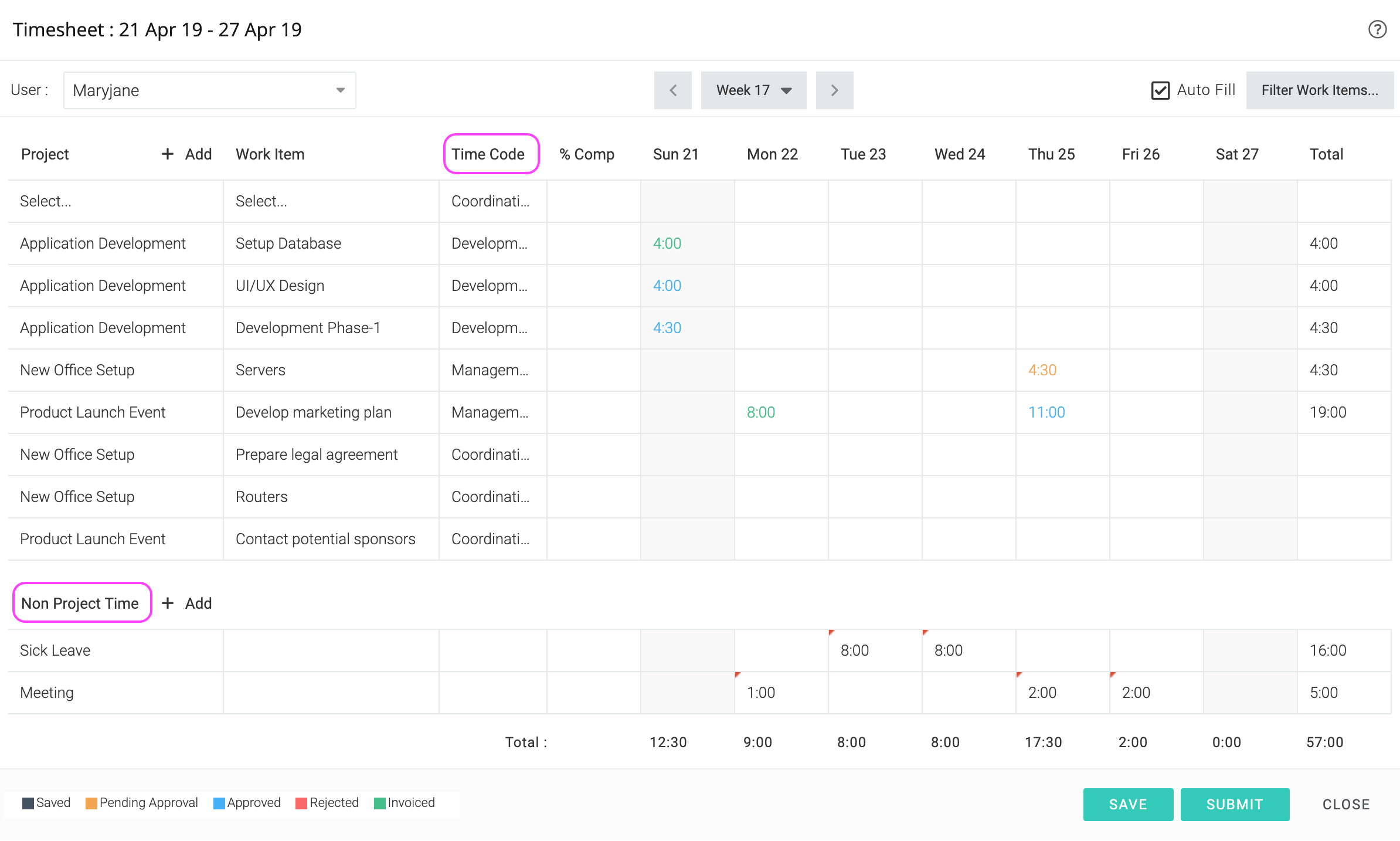Time Codes
A time code represents an activity type for a time entry. For example, a software development company may want to track activities like Programming, Designing and Testing, while a legal firm may want to track activities like Litigation, Research, Meetings, etc.
Time codes help in:
- Filtering: you can filter time entries based on activities and perform bulk actions on them.
- Reporting: you can aggregate information about your activities and create pie, bar and various other types of reports. For example, software development companies can understand the total time spent in Programming or Designing.
- Billing: if your organization uses activity based billing i.e. the billing rate is based on the activity performed not who performs it, then you can define billing rates for time codes. When time is logged, the appropriate bill rate gets applied to that time entry based on it's time code to calculate its bill amount.
Non-project time codes
Some activities are not associated with projects yet that time has to be accounted for. E.g. Meetings, Sick Leave, and Paid Vacation. This can be done using non-project time codes. A non-project time code is like a regular time code but with its non-project flag turned on.
Using time codes
Time codes are selected by the submitter while logging time. Time codes can be selected on the weekly time screen or while logging time on work items. Non-project time can only be logged via the weekly timesheet screen.
Managing time codes
Only administrators can manage time codes. Navigate to Top Menu ▸ ▸ Admin ▸ Timesheet ▸ Time Codes.
Costable
Every time code has a costable flag. When time is logged, if it's time code is costable, then the time entry is marked as costable. Costable time entries are considered towards project cost. Most of your time codes will be costable, however, some could be non-costable e.g. Unpaid Vacation and Unpaid Sick Leave.